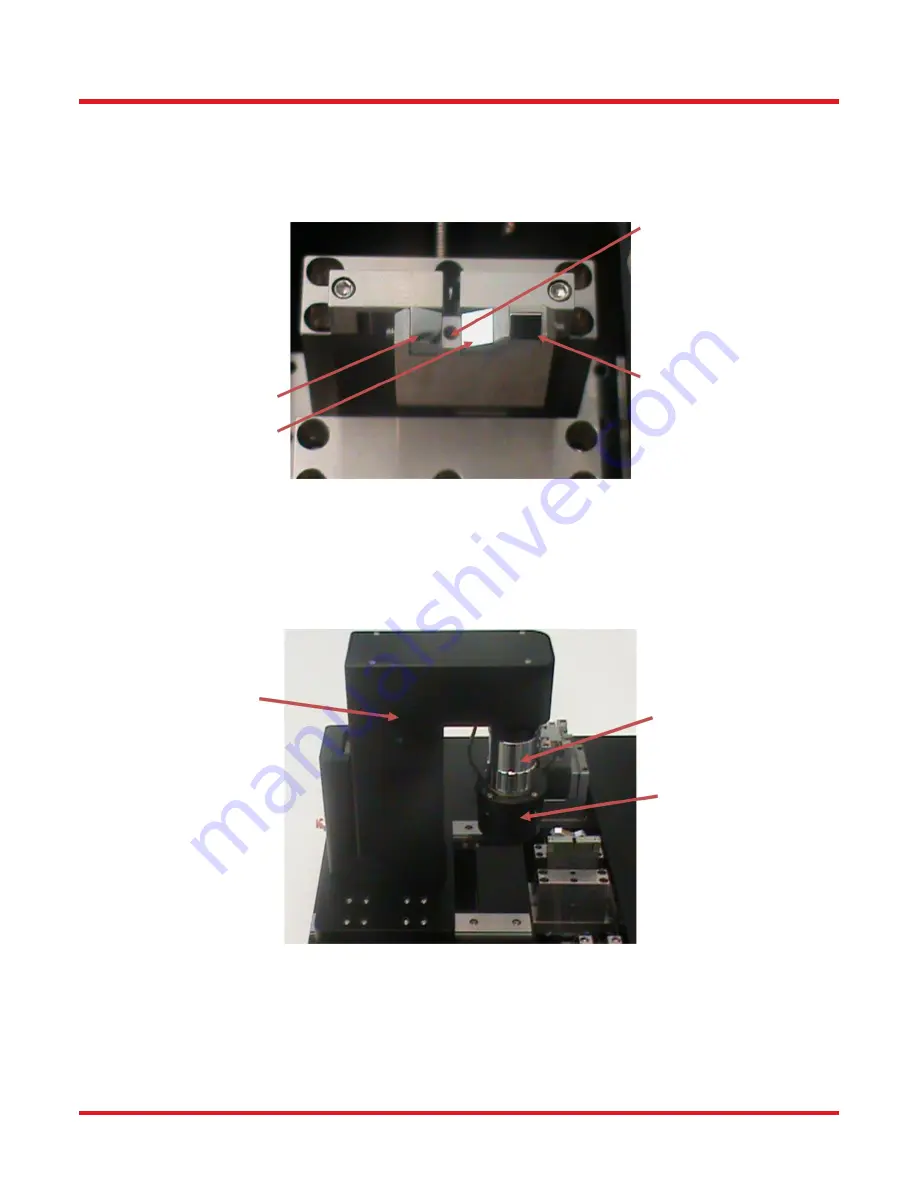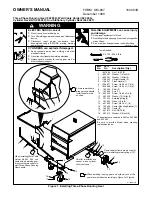
GPX3800 and GPX3850 Glass Processors
Chapter 3: Description
Rev B, July 24, 2018
Page 11
3.4.4. Mirror Tower
The mirror tower has two sets of mirrors and an LED. The first set of mirrors makes it possible to view the sides of
the fiber. They provide the “Front View” and “Back View”. The second set of mirrors makes it possible to view the
ends of the fibers. The LED provides backlighting when viewing the fiber directly in center view. The Mirror Tower
moves in the X-axis to provide the ability to view both the side view and end view of the fibers.
Mirror Tower
3.4.5. Imaging System
The GPX3800 and GPX3850 workstations come with an automated camera assembly used for imaging the fibers.
This tower can be moved forwards and backwards as well as up and down. It is equipped with a ring illuminator
that provides backlighting for the front and back views of the fiber. The camera objective may be replaced if a
larger (or smaller) field of view is desired.
Imaging Camera Assembly
Center View LED
End-View Mirror
Front View Mirror
Back View Mirror
Camera Objective
Ring Illuminator
Camera Tower
















































